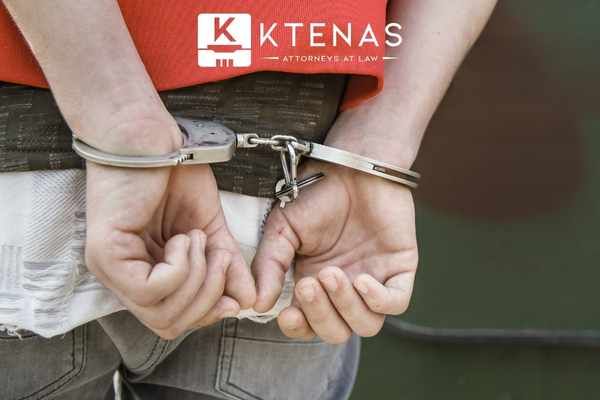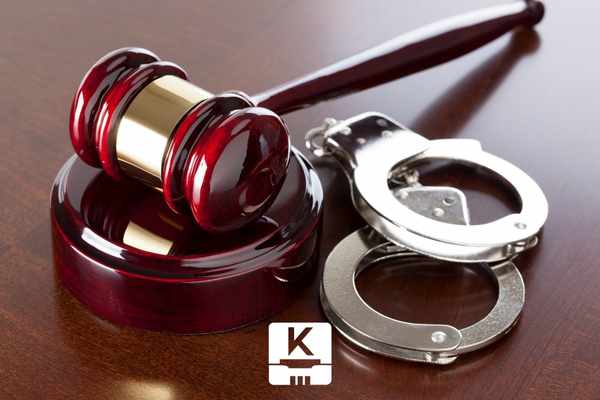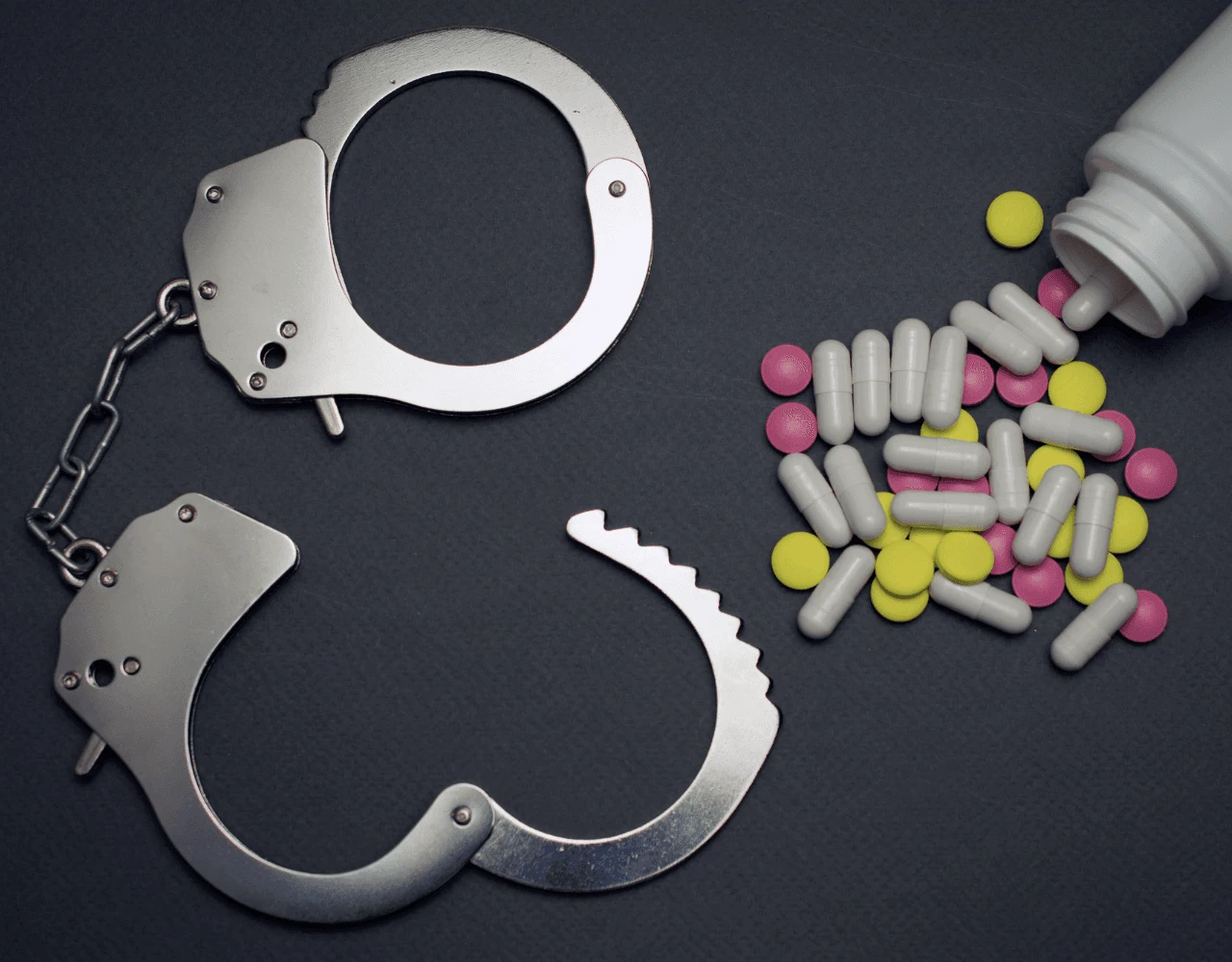Alternative Sentencing Options for Drug Charges in Chicago
2025-04-23T13:15:00
Just like adults, minors can commit and be prosecuted for many types of criminal offenses. Common juvenile crimes in Chicago include shoplifting, vandalism, underage drinking and driving, drug possession and use, burglary, assault, and even homicide. These crimes are considered to be serious offenses that can have long-term consequences for the offender if they are convicted in a court of law.
Common juvenile crimes typically fall into one of two categories: status offenses and delinquency offenses. Status offenses are those that are considered illegal only because of a person’s age. Examples of common status offenses include truancy, underage drinking, and possession of tobacco. Delinquency offenses are those that are illegal for anyone, regardless of age. Examples include theft, assault, drug possession and distribution, and vandalism.

If your child has been charged with a juvenile crime, it is important to understand the severity of the situation and the potential consequences. Contact one of our experienced criminal defense attorneys today at Ktenas Law to help you navigate your child’s rights in court proceedings.
Juvenile crimes are offenses committed by minors, typically between the ages of 13 and 17. Approximately 400,000 juveniles every year are arrested or charged by police for committing a status offense. Twenty percent of offenses committed by youth are violations that would not result in prosecution as an adult (due to age).

The Office of Juvenile Justice and Delinquency Prevention (OJJDP) statistics demonstrate that theft is the most common reason for juvenile arrests. Approximately 50% of juvenile arrests are related to simple assault, drug use, theft, disorderly behavior, and not adhering to curfew regulations.
Juvenile delinquency and crime are growing issues within society today. Juveniles present a particular challenge for law enforcement, as they often do not understand the consequences of their actions or are simply not aware that their behavior is illegal.
Young people can be arrested for a wide range of types of crimes such as petty theft to major violent acts. Crimes and behaviors youth are arrested for include malicious mischief, underage drinking, trespassing, possession of alcohol, drug possession, shoplifting, burglary, car theft, vandalism, arson, and even murder.
Youth offenders are more susceptible to criminal activities than adults due to various factors. These include peer pressure and influence, environmental issues such as poverty or lack of proper supervision, mental health issues, or simply an inability to differentiate between right and wrong.
FAQ: How much does a criminal defense attorney in Chicago cost?
Adult crimes are treated distinctively from juvenile crimes in courts. In juvenile court, the court may decide to continue with the court proceedings or recommend alternative sentencing, depending on the circumstances. An experienced attorney can identify factors that might prevent a juvenile from facing formal charges.
Factors usually taken into account when determining punishment for a minor are the seriousness of the offense, the behavior of the young person, and prior criminal record (if applicable). In making their decisions, the court will take into account the amount of evidence against the minor and whether or not the parent or guardian can help the child improve their behavior. It is essential to seek the advice of a juvenile defense attorney as soon as possible due to the potential long-term consequences of being charged with a crime.
Larceny is another word for theft. This is a common juvenile crime that involves the unlawful taking of another person’s property without their permission. This crime can range in severity from shoplifting to auto theft, depending on the value of the goods taken and other relevant factors. Juveniles may commit larceny for various reasons, such as peer pressure or a need for money.
Acts of vandalism are all too common in juvenile delinquency. It may take the form of graffiti in public spaces such as walls and buildings, damage to privately owned property, or leaving behind litter. No matter what form it takes, the result is always the same: the destruction of property without any clear purpose in mind.
For many young people, particularly during times of boredom or angst, vandalism may seem like a logical option for showing defiance against society and its rules and regulations. However, this misguided behavior often has serious repercussions.

Youth who get caught for vandalism can have many consequences because vandalism can lead to financial losses for a city or property owner, create dangerous environments (such as broken glass from bottles), harm the local ecosystem (by releasing pollutants into water sources), and can be demoralizing for entire communities.
Teenagers are often associated with assault charges because they are often more prone to engage in physical confrontations than adults. During the teenage years, hormones get heightened causing many young people to take more risks.
In some circles within the youth culture, being able to fight or protect yourself is seen as a strength and even celebrated for its bravery. There are instances where gang violence becomes part of daily life resulting in acts of aggravated assault that happened on a regular basis due to ongoing conflicts between groups.
However, it’s important to note that not all assaults occur as a result of fighting among teens. Many cases stem from other acts such as theft or robbery-related incidents. This crime can unfortunately lead to serious physical injuries and potentially devastate individuals emotionally over time.
Disorderly conduct is a rather broad term and refers to behavior that disrupts the peace in public spaces, such as an individual’s verbal or physical misconduct. This could range from fighting, cursing at someone, being loud or boisterous, and exceeding acceptable levels of lewdness or indecency. Police officers are usually the ones who identify behavior that qualifies as disorderly conduct and make necessary arrests to ensure all individuals within the vicinity feel safe.
FAQ: What should I do if I’ve been charged with marijuana possession?
Although it may seem that all chaotic instances of aggression and fighting can be labeled as “disorderly conduct”, there has to be some kind of disruption to the peace for it to qualify for an arrest on those grounds. For example, if two people were arguing but not making a scene or inciting fear in others, they wouldn’t qualify as having committed a criminal offense.
Unfortunately, the influence of drugs and alcohol on American youth cannot be understated. A large number of teenagers are regularly exposed to these substances, often starting at a young age.
Young people might face serious charges such as public intoxication, underage alcohol possession, DUI, or possession of drug paraphernalia or narcotics. While compassion needs to be exercised in certain cases towards juvenile offenders regarding drug-and-alcohol-related offenses, it will typically not be used as leverage to dismiss any wrongdoing.
Possible alternatives include community service hours, counseling, probation, and fines. The alternative sentencing options vary greatly by case.
For example, counseling sessions may be required as a condition of release from a juvenile detention center. Counseling can prove beneficial in helping the delinquent understand their current state of mind and emotions that lead to criminal behavior.
For more serious offenses, the court may impose parole or probation programs to ensure the young offender does not repeat their behavior. These measures can include regular check-ins with an officer and restricted access to certain areas or activities.

In comparison to adult punishments, judges presiding over youthful offenders are often more lenient on punishment. For less serious crimes such as vandalism or trespassing, judges often order the juvenile defendant to pay a small fine accompanied by a written apology letter to the property owner affected by their actions.
Additionally, juvenile offenders may be granted an early release from juvenile detention facilities if they demonstrate good behavior. It is important to note that crime prevention is at the heart of all alternative sentencing options for juveniles; rehabilitating rather than punishing the offender is seen by many as the best way forward.
If your child is involved in juvenile crime issues, you may feel overwhelmed or unsure of their legal rights. In such cases, seeking the assistance of a lawyer can be beneficial in ensuring that your child’s rights are protected as you begin legal court proceedings.
Call (312) 756-8652 today for a free consultation with one of our Chicago criminal defense lawyers at Ktenas Law to discuss your child’s case.

2025-04-23T13:15:00

2025-04-07T11:50:40

2025-03-24T11:55:03

